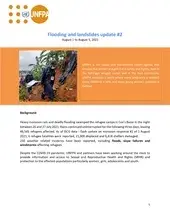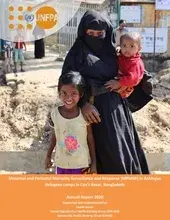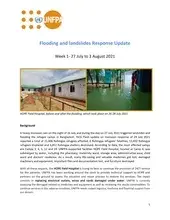The ongoing COVID-19 pandemic has hampered the ability of UN officials to travel around the world to engage with communities UN agencies support through their work in all parts of the globe. This is a major issue, as we firmly believe that the only way in which we can truly perfect the support we provide is if the feedback from the people we serve reaches the highest levels of the global UN system.
To devise an innovative solution to this persistent issue, UNFPA, FAO and WFP invited the UN Under-Secretary-General for Humanitarian Affairs and Emergency Relief Coordinator, Mark Lowcock for a virtual visit to Garuhara Village, Kurigram District in March of 2021. The purpose of the visit was to give Mr. Lowcock an opportunity to engage with local community members who had received flood relief through an Anticipatory Action project, which UNFPA, FAO, WFP and their various partners implemented in 2020 with funding from UN OCHA. For the first time ever in Bangladesh, the project had provided relief to the vulnerable communities before the floods actually hit the village.
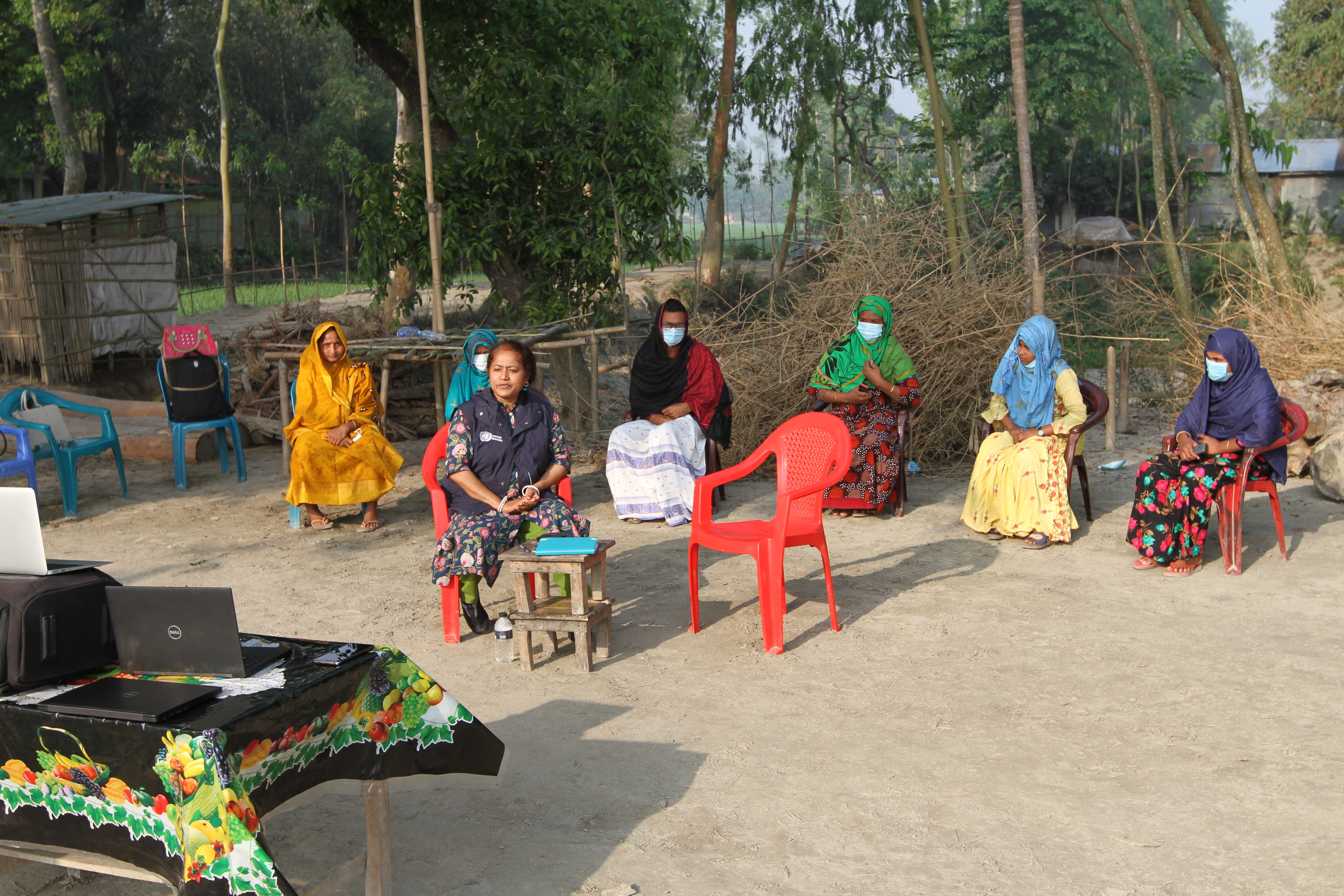
The virtual visit was organized by gathering six people who had received the support into Garuhara village, where a Zoom meeting with Mr. Lowcock in New York, the UN country leadership in Dhaka and high-level government officials from Dhaka and Kurigram was arranged. In the course of the discussion, the people from Kurigram were able to share their thoughts on how the distribution of the relief prior to the disaster had helped them cope with the floods better than in previous years.
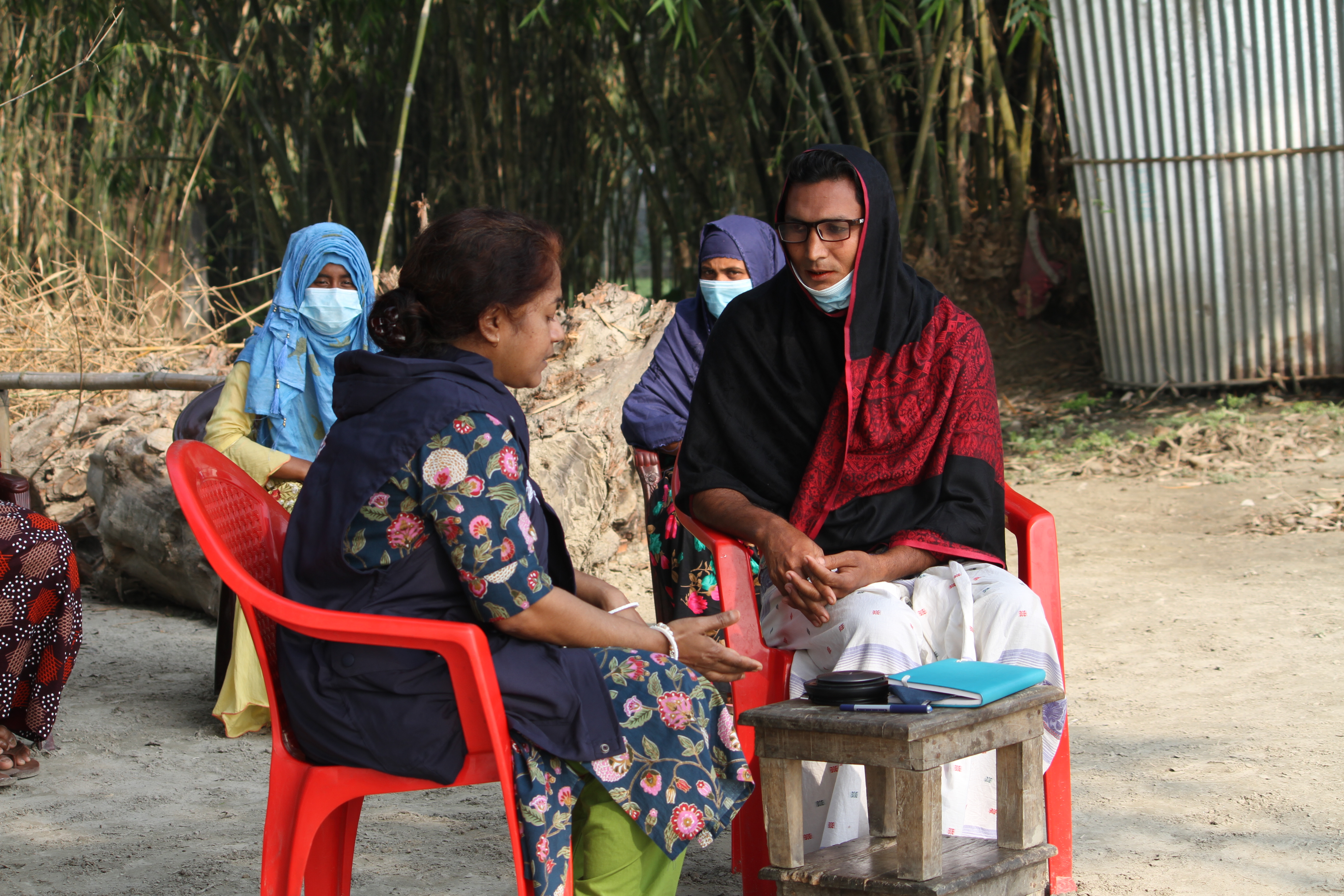
Mr. Lowcock was deeply impacted by the stories shared by the participants, which included members of Kurigram’s transgender community, adolescent girls, single mothers and other vulnerable groups. “The fact there will be floods in Bangladesh every year is something that we all know. It is very impressive and powerful for me to hear you say that when we can anticipate what will happen, it is far better to act before it happens,” he remarked at the end of the discussions.
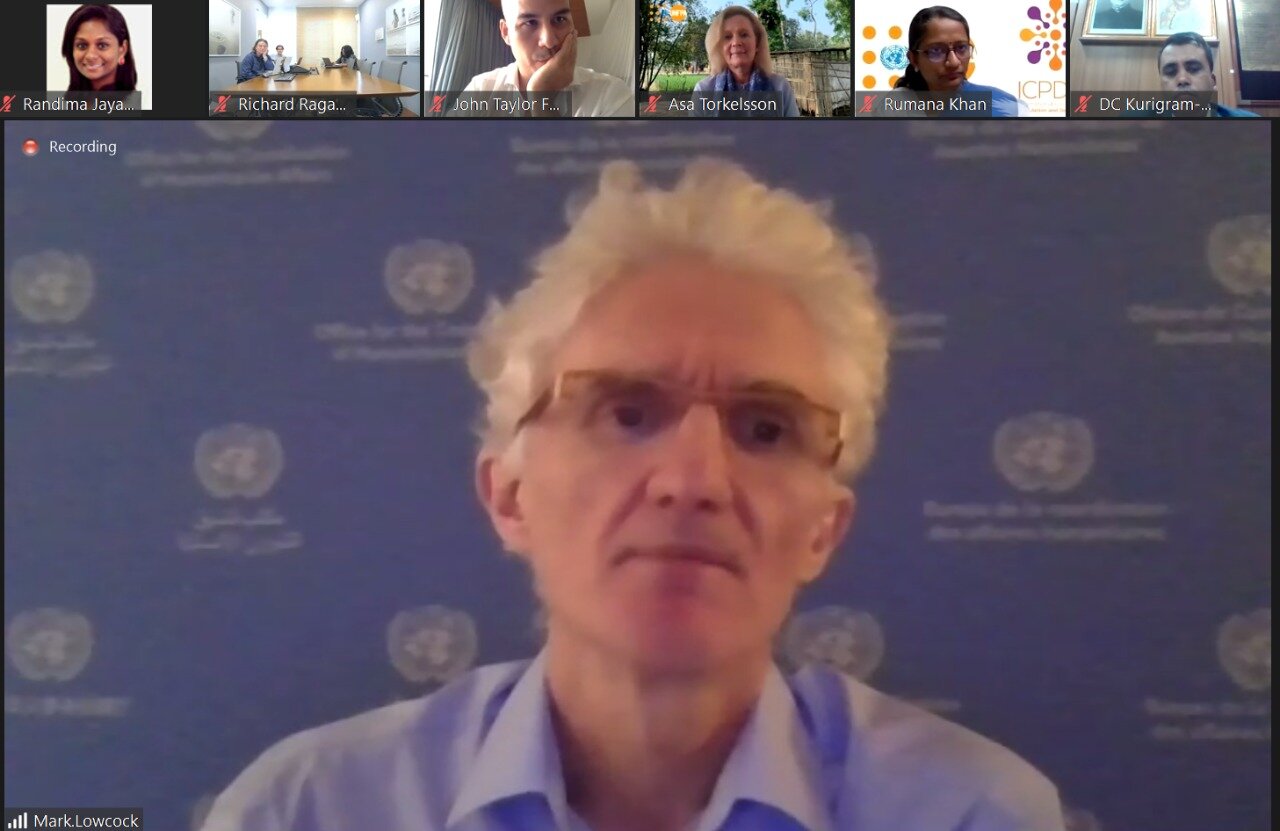
After the virtual visit, Mr. Lowcock had a meeting with Deputy Commissioner of Kurigram, Md. Rezaul Karim; the Secretary of Disaster Management and Relief, Md. Mohsin; UN Resident Coordinator in Bangladesh, Mia Seppo and country representatives of each of the implementing agencies, including Dr. Asa Torkelsson of UNFPA. Based on the conversations Mr. Lowcock had with the local communities, the group discussed how the anticipatory actions completed in 2020 could be improved if they were to be performed in anticipation of floods again this year.
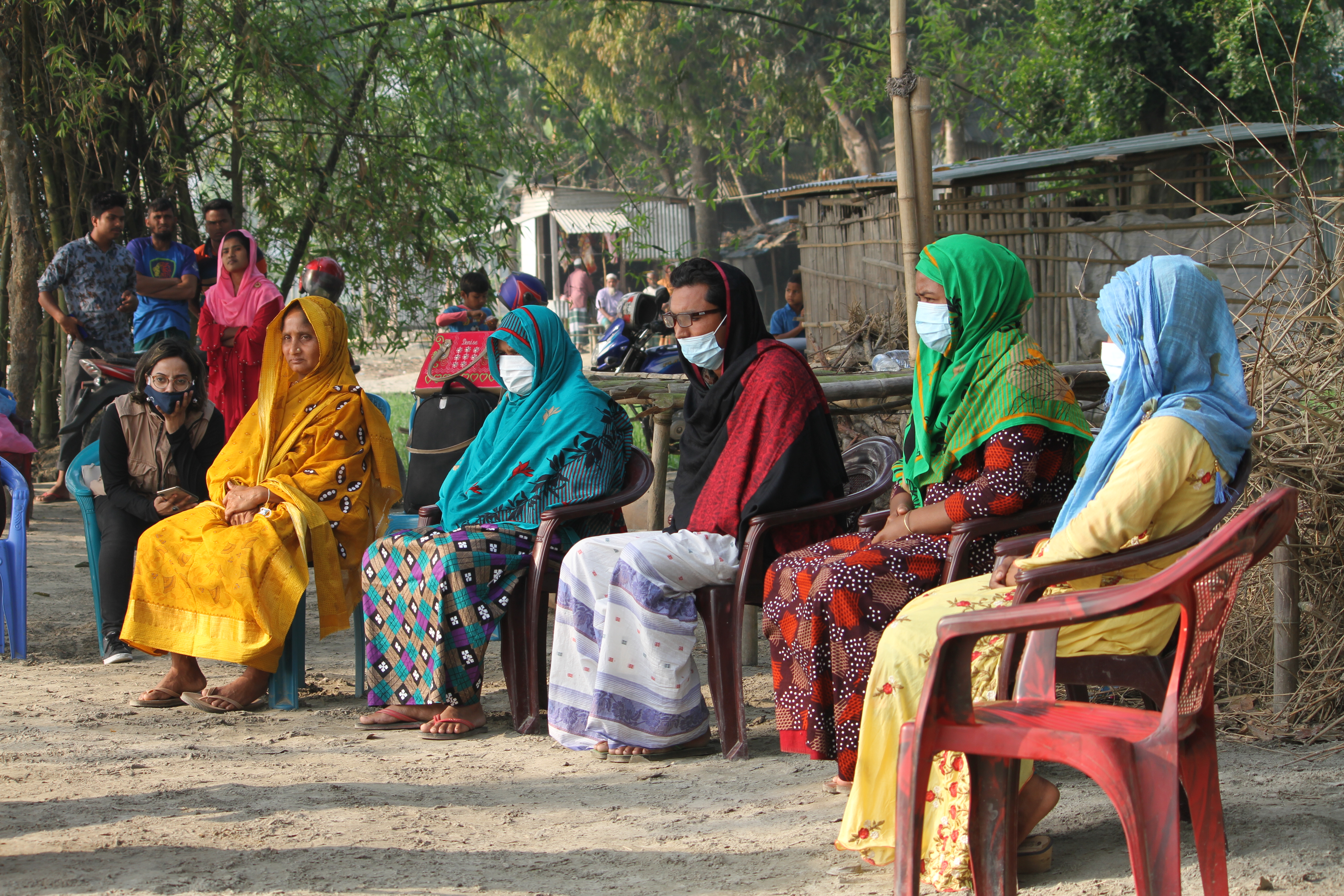
“This virtual visit has been an innovative way to showcase the results of one of the most innovative initiatives UNFPA has had the opportunity to take part in during the past few years. It cannot be stressed how important it is that the voice of those we serve through our work continues to be amplified in the international stage during COVID-19. I am convinced that the arrangement we have made can serve as a model for arranging international field visits in this era of strict mobility restrictions that the pandemic has forced us to confront,’’ UNFPA Representive, Dr. Torkelsson concluded at the end of the visit.


